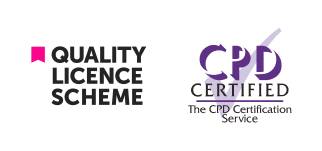
Do you want to write a book, a blog, or just want to write for fun? Or maybe you hate writing because of the academic assignments in school and college? Whatever your case is, writing skills are essential for your career. And you need to know how to improve your writing skills to succeed in your career.
Even if the word “writer” isn’t mentioned anywhere in your job description, the ability to write well can be a significant boost to your career. In the workplace, most of the communication is in written words. You often have to communicate with potential clients via your newsletter, email your boss, write a company-wide report. Therefore, it is essential that you need to have good writing skills to succeed in your career.
Stick to the blog to know how to improve your writing skills including academic, professional, business writing and business email writing skills.
Academic Writing Skills

Academic writing is a necessary skill set for all students. Without good writing skills, it is very hard to succeed in the competitive world. Therefore, you must develop this skill during your academic career.
However, when writing, it should be clear, concise, focused, structured. Also, it must be backed up by evidence. The purpose of academic writing is to aid the reader’s understanding of what the writing is about. It helps you communicate and share your ideas with grace, clarity, and energy.
The tone and style of the writing must be formal. However, the essays should not be too complex. Also, you don’t have to use long sentences and complicated vocabulary in your writings.
Characteristics of academic writing
There are some specific characteristics of good academic writing. It helps you communicate and share your ideas with grace, clarity, and energy. Characteristics of academic writing are:
1. Formal in tone and style
You should use appropriate language and tenses. Also, the writing should be clear, concise, and balanced.
2. Well planned and focused
The answers to the questions should be planned wisely and clear. In addition, you need to demonstrate the answer in a way that the audience can understand easily.
3. Well-structured
The writing should be coherent and also written in a logical order. Also, there should be a link between the points and materials.
4. Evidence-based
Your writing should demonstrate knowledge of the subject area. It also should support opinions and arguments with evidence. Cite the material where it is necessary.
Benefits of academic writing skills
Academic writing skill is a must if you want to succeed in the competitive world of academia. There are a lot of advantages of academic writing skills. By acquiring good academic writing skills, you will be:
- Perseverant.
- Increasing focus levels.
- Developing creativity in your writing.
- Discovering the power of writing.
- Improving your analytical skills.
- Knowledgeable in different areas.
- Strengthening your identity as a writer.
That’s not all. There are certain benefits you may not be aware of. For example, you might get a job in your department right after graduating.
So, what do you think, is it essential or not for advancing your academic and career?
How to improve your academic writing skills?

If you are writing an academic essay, it should be clear, concise, focussed, structured. Also, the tone, style, and structure should be formal. It is a must in academic life and has huge benefits in your career also. So, it is vital that you improve this skill. Here are some tips for you to enhance and polish your academic writing skills:
1. Write up to the level of the intended audience
The audience of academic writings are highly educated and well-informed individuals. Also, they know the basics of the topic in question. So, the audience doesn’t need an in-depth introduction or explanation of the subject.
2. Build on the past
Academic writings require a great deal of research before starting to write a paper. You need to compile and expand on certain topics, papers, and research relevant to your interest. Ensure that your work is unique and not repeating others’ ideas.
3. Plan And structure
Writing a paper requires a lot of research on previous related work. If you plan ahead, you have the opportunity to prove your work correct. A proper structure will guide you in writing your paper.
4. Go to the points and take a stand
The first paragraph should contain the main points which are to be covered in the entire paper. And this helps the readers to understand the topics.
However, writers include brief abstracts in a scholarly research paper. It serves the same purpose, which is to summarise the document in short paragraphs.
5. Provide supporting evidence
When you are writing an academic research paper, you should also cite the sources in it. It is ideal that every research paper should include complete bibliographic information. It helps the reader and editors to check and evaluate your work.
6. Avoid literary clichés
The main purpose of academic writings is to inform and educate their readers. So, you should choose a language that is best suited to the subject matter. Also, the writings should be clear, concise, and to the point.
However, don’t use flowery language and the overuse of metaphors and analogies in your essays. By doing this, you may be distracting your readers from the main point. Also, it may diminish your work.
7. Edit, edit, edit
Like other types of writings, the process of editing is very important and should be an ongoing process. Editing ensures that your academic writing is both concise and persuasive.
By polishing the existing writings and eliminating excess vocabulary, you can produce papers that make your points eloquent to the readers.
8. Proofreading leads to perfect papers
Before submitting your work for review, you should carefully examine your paper for any grammatical errors. It makes sure that your paper is credible and compelling.
You can take help from online tools such as Grammarly, LanguageTool, etc.
Email Writing Skills

Email stands for electronic mail. Nowadays, it is the most common form of communication and used in every organisation. Email writing involves composing, sending, storing and receiving messages. The whole process is done over an electronic communication system.
People prefer email writing over other forms of communication because it is cheaper and faster. There are three types of email formats. Which are-
1. Semi-Formal email
2. Formal email
3. Informal email
Semi-Formal Email
Semi-formal emails are for semi-formal events. For example, you can use this format when writing an email for a colleague or a teammate. The used language should be simple, friendly, and casual. When writing a semi-formal email, you must maintain modesty and dignity.
Formal Email
As the name suggests, formal emails are for formal occasions. If you are writing an email for any business communication, you need to write it formally. You should use formal email writing if you are composing an email for:
1. Companies,
2. Government departments,
3. School authorities or
4. Any other officers.
Informal Email
We use this format of email for communicating with relatives, family or friends. But, there are no specific set of rules for informal email writing. You can use any language of your choice in an informal email.
Characteristics of a good business email writing
Email writing is a form of expressing ideas or queries to the recipients. We can express them easily if we write an email in clear and meaningful terms. Email is also the primary tool of communication for business organisations. If you can write emails effectively, you will have many advantages in the workplace.
Thus, effective email writing is vital for communication and also to advance our career. The characteristics of a good email are quite a few. A good quality email:
- Has excellent subject lines.
- Is compelling and easy to read.
- Is relevant to the recipient’s needs.
- Has own goals. For example, to promote or share information.
- Is compatible with mobile devices.
Benefits of quality business email writings
Email has remained a key business communication tool for many years now. In fact, every company, including the small ones, uses email as a medium of communication. Employees are using it for communicating quickly and clearly with colleagues, clients or customers.
That’s not it; there are many practical uses of email. Scholars are using it nowadays more than ever. They use email for coordinating and sharing information with each other.
There are many advantages of quality email writings. By writing emails effectively, you can:
- Ensure effective business communication.
- Present yourself as a credible writer.
- Make you more influential in email marketing.
- Give you a chance to demonstrate your intelligence in the workplace.
- Boost your professional confidence.
- Promote yourself and your career.
How to improve your business email writing skills

People use email in business as a medium of communication and using it more than ever before. Professional email writing skill is a critical skill, and you need to maintain them because hundreds of businesses rely on emails for communication.
Employees use emails to communicate with colleagues, clients, or customers. There are quite a few innovative ways to improve your business email writing skills. Read on!
1. Be precise
Always be specific, clear, and precise whenever you are communicating via email. Keep the important information in the first paragraph. Because most people only read the first portion of writing. If they find it useful, they continue reading. Thus, by putting important stuff first, you’re ensuring proper communication.
Use bullets, numbers, or highlighting if you are writing multiple points. It makes the information more readable and navigable. So, be clear, specific, and precise when writing business emails.
2. Use professional sign off
A professional business email sign-off is essential for business email writings. Often, sign-off can communicate your name, title, and personal branding effectively to the clients. In many cases, a professional email signature can help you to:
- improve reader response,
- target your audience, and
- communicate contact information.
3. Utilise professional etiquette
You need to familiarise yourself with several etiquette rules for emails. Professional etiquette is important for both employers or employees in business email. First, make sure you are always aware of the email recipients. That way, you can only send emails to those who need them.
However, you should always use a professional tone and diction when communicating via email. Don’t use slang, grammatical errors, or misuse of language in emails. Last but not least, use clear, formal phrases to convey your message.
4. Always proofread
Finally, you should always thoroughly check your emails before sending them. Check the email content for spelling, grammar, tone, and punctuation mistakes.
You should remember that clients only read emails that are short, concise, and clear. So, make sure your business email has a nice length and is unambiguous.
By providing final editing to your emails, you will ensure clarity. Also, your messages will successfully reach the readers. Therefore, before pressing the send button, always proofread your business email content.
Professional Writing Skills
Professional writing is all about conveying information in the workplace. It allows professionals to make informed decisions in the workplace. Professional writing typically has a formal tone and is different from creative writings such as novel writing.
Literary or artistic writing seeks to entertain and convey a philosophical truth. On the other hand, professional writing is to:
- Encourage action
- Instruct
- Persuade
- Inform
- Affirm shared goals in a workplace and business environment.
It allows various types of professionals in the workplace to communicate ideas to each other. For example, engineers can explain their newly invented tech to the sales team by writing a manual.
Importance of professional writing skills
In each profession, there is writing work. Professional writing skills are essential for everyone in any workplace, whether you are the owner of a company or an employee. You must have professional writing skills to convey your ideas and suggestions successfully.
Professional writing skills will help your peers, colleagues, or friends understand your message. If your written piece contains grammatical errors, people will not take your message seriously.
Good writing indicates to your employer that you are more capable, intelligent, responsible and credible than others. Therefore, you will have the edge over the others in the time of promotions and hikes.
Thus, we can say that professional writing skills are valued in the workplace and personal life also.
How to improve your professional writing skills
Professional writing skills are less innate and more about practice. To improve your professional writing skills, you have to practise and work hard. Failing to improve your skills will lessen your career growth opportunity.
Here are a few tips to improve your writing skills:
1. Brush up on your grammar knowledge
The first thing you need to do is brush up on your grammar skills. When writing, knowing the basics of grammar and spelling is very crucial. Because it is unprofessional to send emails with errors.
It only requires practice and your dedication to improving the grammatical skills. There are many free books and materials available online.
2. Be clear
Be clear about what you want to mean in your writing and use easy and simple vocabulary. Effective writing is clear, easy to understand and easily accessible to the readers. If you use informal language in your professional writing, readers will avoid reading your content.
3. Be Concise
When writing for clients or colleagues, you need to remember that everyone has a very short time to read. You need to be concise in your writing to get and keep people’s attention.
Always put your main ideas or message in the first sentences. Also, keep the document short because shorter items are likely to be read on smart devices. So, you should use short sentences and paragraphs to keep your text readable.
4. Watch Your Tone
Tone affects your writing, and your professional writing tone should be formal. Your writing tone gives away if you are curt, rude or unfriendly in the content.
Thus, use a friendly tone when writing. It invites readers to pay attention while being humble to them. They will appreciate your work more than you think.
5. Use Online Tools
It is always worth getting help from others with your writing. Nowadays, there are plenty of online tools that can help you improve your writing. Below are some useful tools:
- Easy Word Counter: you can use this tool to check the length of your writing.
- State of Writing: This site is full of helpful writing guides.
- Grammarly: It is a browser extension and can help you with grammar and spelling in everything. Grammarly also sends you a weekly progress report.
- Cite It In: You can use this tool to cite your information sources correctly.
6. Edit and Proofread
No matter what you’re writing, always ensure that it’s proofread thoroughly before submitting it. Even a single mistake can cause embarrassment. Even premium spell checkers won’t catch everything, so ensure you read your writing carefully.
Creative Writing Course: Writing Storybooks For Children
Creative Writing Course: Writing Storybooks For Children
Business Writing Skills
Business writing is vastly used in a professional setting for communication. It conveys relevant information to the reader in a clear, concise, and effective manner. The purpose of the writing is to help the reader learn something or do something. So, the writings must be substantive, clean, accurate and easy to scan. Business writing can include:
- sales and marketing materials;
- training and educational content;
- communications like emails and memos;
- reports and presentations;
- administrative materials like Standard Operating Procedures;
- and more.
Type of business writing
The broad field of business writing can be divided into four sections based on their purpose. These four sections are:
1. Instructional
Instructional business writing is to guide the reader through the steps of completing a task. For example, product user manual and memo.
2. Informational
Informational business writing deals with recording business information accurately and consistently. It comprises documents essential to the business’s core functions, such as tracking growth, outlining plans, and complying with legal obligations. For example, the financial statements, report writing for a company.
3. Persuasive
The aim of persuasive writing is to impress the reader and influence their opinion. It contains the relevant information to convince the reader that the services you are providing are the best. This type of writing is generally associated with marketing and sales. For example, business proposals, bulk sales emails, and press releases.
4. Transactional
Everyday workplace communication falls under the category of transactional business writing. Most of these communications are by email but also includes official letters, forms, and invoices.
Importance of business writings skills
You need to improve your communication skills continuously to stay in the career race. Also, you need to be an effective communicator to move up the career ladder irrespective of the field, job, and expertise.
In the workplace, there are three main ways of communication; these are verbal, non-verbal and written. All of them are essential, but writing is more important than the others. Effective business writing skills will:
1. Ensure effective business communication.
2. Demonstrate your intelligence.
3. Boost your professional confidence.
4. Increase sales.
5. Boost your brand reputation.
6. Bolster efficiency, productivity, and innovation.
7. Produce quality management.
8. Aid bench strength and retention.
9. Help you in advancing your career.
So, we can say that business writing skill is important for your career. And you need to improve it regardless of your job field.
How to improve your business writing skills?

It requires time, practice, and patience to make your writing great. “Good writing is not a natural gift; you have to learn it,” said the iconic businessman David Ogilvy.
There are many ways you can quickly make improvements to your own writing. For example:
1. Think before you start writing
Before you start writing anything, think about what you want to say to your audience. Also, ask yourself, “what they want to hear from your message?
You can also follow the famous ‘5Ws+H’ to craft your work. These ‘5Ws+H’ are-
- Who is my audience or reader?
- Why do they need this piece of information?
- When did this happen, when does this apply, or when do they need to know it?
- What do they need to know?
- Where is this happening?
- How should they use this information?
2. Keep your writing short
After deciding what you want to say to your audience, the next step is to get to the point quickly. Your reader won’t have the luxury of reading your piece for a long time. If you keep the sentences short and precise, they will appreciate your writing.
3. Avoid pretentious words
When you are writing, your goal is to be clear and direct. For instance, if you use very difficult words, they will feel lost and annoyed. And believe me, you don’t want to do that. So, avoid the temptation of using flowery and pretentious words to sound smarter to the reader.
You should also avoid jargon vocabulary in your writing. It also makes you sound pretentious. Write the way you talk. Always keep the writing natural and direct.
4. Avoid passive voice
Passive sentences sound weak and wordy; they are like a limp handshake. On the other hand, active sentences are direct and bold. They sound more interesting than passive sentences. If you minimise the use of passive voices in your writings, your writing will improve dramatically. Look at the below example:
Active: The golfer hit the ball.
Passive: The ball was hit by the golfer.
Which one do you think sounds better, clear, and direct?
5. Clarify the call to action (CTA) in your writing
Every business communication has a purpose, and you need to clarify it in your writing. The CTA of your messages is to make the reader do something, such as:
- call you back,
- give you more information on something,
- confirm their presence at a meeting,
- and so on.
Always ensure your CTAs are clear and understandable, don’t leave them hanging. So, spell it out and be specific.
6. Never use email to deliver bad news
Do it in person; never use email to pass on bad news. If you deliver them by email, there is room for misunderstanding the message. The prospect also amplified when you use email.
So, if you are going to let someone go from your team, do it over face-to-face conversation.
7. Edit and proofread
Grammar and spelling mistakes are pretty embarrassing in front of your colleague. They also hurt your credibility. Sure, there are some premium tools such as Grammarly that are great for editing. However, you can’t rely on them; they don’t catch everything.
After that, proofread your writing. If possible, read it after a few days. By doing this, you can find mistakes you might have missed the first time.
Conclusion
Writing is more important than we think it is. Anyone can write, but not everyone’s writing attracts the readers and convey the message. Effective writing is crucial for any individuals or business that wants to succeed.
If you want to improve your writing skills at any points in your life, The best way is to practice a lot. The more you write, the better you will get.
Are you interested in creative writing? If you are, you can take an online creative writing course with CourseGate.
Creative Writing Course: Writing Storybooks For Children
Creative Writing Course: Writing Storybooks For Children
- All Courses
- IT & Software99
- Microsoft Office64
- Nonprofit & Charity55
- Health & Safety91
- Life Style73
- DIY43
- On Demand Courses42
- Quality Licence Scheme Endorsed113
- Health and Fitness77
- Health and Care162
- Admin42
- Digital Marketing48
- Psychology & Counselling84
- Teaching and Education99
- Design75
- Management129
- Beauty42
- Accounting58
- Employability200
- Human Resource47
- Personal Development131
- Marketing59
- Business153
- Photography38
- Language26








